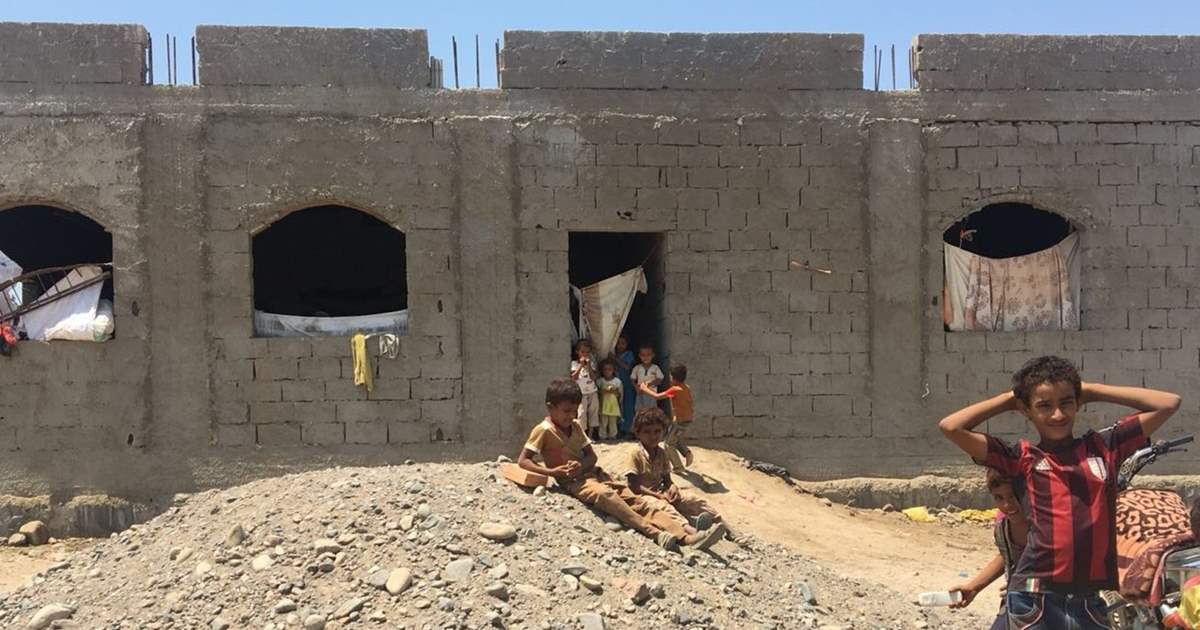One week ago, Saudi- and Emirati-led coalition forces launched an offensive against the Yemeni port city of Hodeidah. In what has become the largest battle of the violent conflict, the attack has signaled not only an escalation in violence, but the urgency of the world’s worst humanitarian crisis. Americans for Democracy & Human Rights in Bahrain (ADHRB) released a statement today highlighting the most recent offensive of Saudi-led coalition forces on the Yemeni port city of Hodeidah. In the wake of the attacks, the already precarious humanitarian crisis has the potential to take a devastating turn for the worse. On World Refugee Day, as internal displacement escalates throughout the conflict, the crisis facing the displaced population is reaching a new level of urgency in the Middle East’s poorest country takes on a new level of precedence.
Fostering 70 percent of the country’s desperately needed aid, the attack on the port has become a crucial battle in the 3 year war that has ravaged the country and uprooted millions from their homes and livelihoods. Even before Saudi Arabia and its coalition allies began their attack on Hodeidah – Yemen’s humanitarian lifeline – the conflict in Yemen has seen over 2 million displaced civilians, 89 percent of whom have been displaced for more than a year. But with no end of the war in sight, the already devastating crisis has taken on a new sense of urgency: desperation has led many to return home despite the ongoing conflict and violence surrounding them and many others have fled southward, arriving at overburdened camps and towns buckling under the demands for medical treatment, clean water, food and shelter, and bringing with them injuries from the conflict. Tents comprised of anything from canvas to torn blankets, pitched next to sewers, has become the new norm for the displaced who have fled.
With the attack on Hodeidah, the UN has estimated that a potential 200,000 people could be uprooted in the violence. In the past few days alone, airstrikes conducted on the city’s airport by Saudi-led forces have signaled an escalation in the attack. The attacks and siege of the airport has not only hurt Houthi forces—violence has overflowed into the street of surrounding neighborhoods, causing residents to evacuate their homes to avoid injury and in search of food. Since the airstrikes have begun, an estimated 1,000 Hodeidah residents have fled the violence for neighboring villages and towns, while other have been trapped to the confines of their home with rapidly diminishing supplies. As they flee, their need for food, water, and medical supplies will put even more pressure on Yemen’s already stressed and overburdened health system.
The recent attack on Hodeidah emphasizes a much larger issue emerging from the conflict between the Saudi-led coalition and the Houthis. As violence continues to escalate, the lives of millions of Yemenis are put at stake and thousands more subject to displacement. It has become fundamental for international actors to intervene further as the humanitarian crisis reaches the brink of complete disaster. World Refugee Day offers an opportunity to renew dedication to human rights and security, providing the chance for the international community to step forward and begin addressing the crisis in Yemen not only through aid, but through action to mitigate displacement in the wake of Hodeidah. The protection of Yemen’s internally displaced population must also be at the forefront of the conversation throughout the crisis, as they have become some of the country’s most vulnerable.
Laura Neumayer is an Advocacy Fellow with ADHRB.





